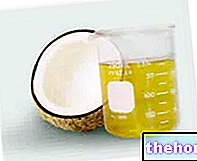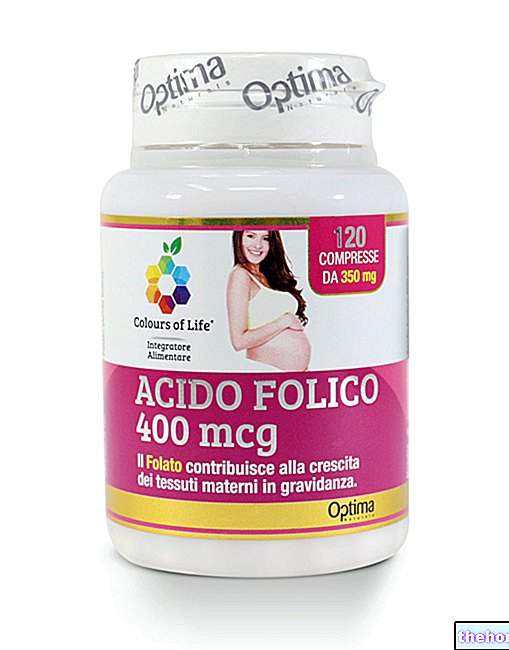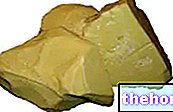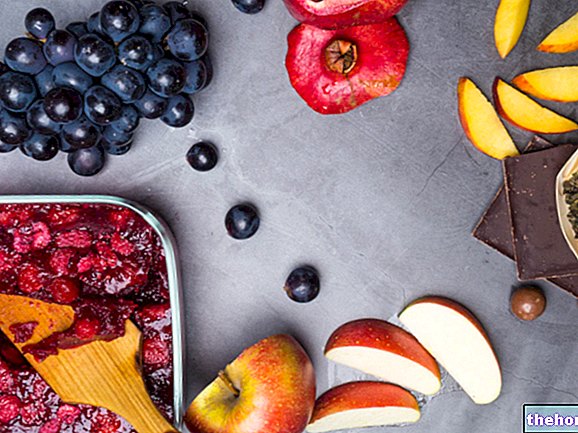Generality
Lutein is a substance of natural origin, known for its antioxidant and protective properties on sight.
From a chemical point of view, lutein belongs to the group of xanthophylls, natural fat-soluble pigments contained in many foods, of both animal origin (egg yolk is rich in it), and above all vegetable (spinach, corn, Brussels sprouts).

Once taken through the diet, this substance concentrates in the macula, ie in the central area of the retina of the eye, where it absorbs the natural blue light, protecting it from harmful UV rays.
It is therefore no coincidence that in some studies lutein has been shown to be effective in preventing age-related macular degeneration, which recognizes one of its main risk factors in excessive exposure to the sun's glare (together with cigarette smoking, genetic disorders and nutritional imbalances). This disease is characterized by a degenerative process affecting the retina. In individuals aged over 55-65 who live in industrialized countries, age-related macular degeneration is the main cause of progressive and irreversible loss of visual function.
To a lesser extent, lutein is also present in the lens and in this regard it is ascribed to the ability to counteract cataracts (a disease due to the "clouding of the lens of the" eye).
Xanthophylls, including lutein, which can also be indicated on the label by the code E161b, are widely used in the food industry (as natural dyes) and in the zootechnical industry, where they are added to feed intended for feeding hens to accentuate the color. egg yolk.
For men, the daily requirement of lutein is estimated at 4-6 mg (50g of spinach per day is enough to satisfy it).
Lutein in Food
Indications
Why is lutein used? What is it for?
Classically, by virtue of its biological role, the use of lutein is justified above all in the ophthalmological field, as a protective agent against oxidative pathologies of the eye, such as cataracts and age-related macular degeneration.
In recent years, however, the antioxidant properties of lutein have extended its use also in the antiaging field, where it seems to slow down the oxidative processes, responsible for the structural and functional aging of numerous organs and tissues.
Properties and Benefits
What benefit has lutein shown during the studies?
The efficacy of lutein in ophthalmology has been widely described by numerous experimental and clinical studies.
The anti-aging activity would appear to be less characterized, despite some particularly interesting recent evidence.
According to various clinical trials, conducted on over 500 patients, the use of about 30 mg of lutein for 140 days seems to improve the clinical course of ophthalmological diseases such as age-related macular degeneration.
In these patients, disease progression would be significantly delayed, and clinical complications less severe.
In an epidemiological study, the adequate consumption of foods containing lutein appears to be associated with a marked reduction in the risk of developing cataracts even in predisposed patients.
Dosage and method of use
How to use lutein
Since the effective dosages and dosage schedules are not yet fully standardized, lutein is present in very variable doses in supplements, ranging from 250 mcg to 50 mg.
Given the lipophilic nature of this molecule, it is recommended to take lutein concurrently with meals, to promote intestinal absorption.
In the formulation of supplements, lutein is often associated with other antioxidants, to enhance their effect. As regards the prevention and therapy of age-related macular degeneration, in addition to lutein, the nutritional importance of other antioxidants has also been recognized ( vitamin E, vitamin C, lycopene, selenium, coenzyme Q10), some minerals (copper and zinc in particular) and foods particularly rich in these substances (green tea, tomatoes, peas, broccoli, cabbage, zucchini, green salad, corn etc.).
Side effects
The use of lutein, according to the appropriate indications, has generally been shown to be safe and well tolerated.
The side effects described were very rare and clinically insignificant.
Contraindications
When should lutein not be used?
The use of lutein is contraindicated in case of hypersensitivity to the active ingredient.
Pharmacological interactions
What drugs or foods can modify the effect of lutein?
The intestinal absorption of lutein could be compromised by the simultaneous intake of active ingredients and foods such as cholestyramine, colestipol, mineral oils, orlistat, beta-carotene and pectin.
On the contrary, the simultaneous use of medium-chain triglycerides or some vegetable oils, such as corn, would seem to increase intestinal absorption of lutein.
Precautions for use
What do you need to know before taking lutein?
During pregnancy and in the subsequent period of breastfeeding, even in case of greater need, the only safe and adequate source of lutein would be that deriving from the daily consumption of fruit and vegetables.
In these particular phases of life, given the ability of lutein to accumulate in the adipose organs, the use of specific supplements is generally contraindicated.

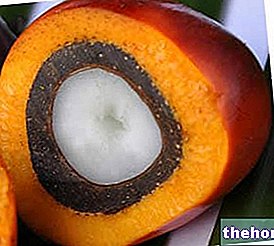
-ed-essenziali-(age).jpg)
